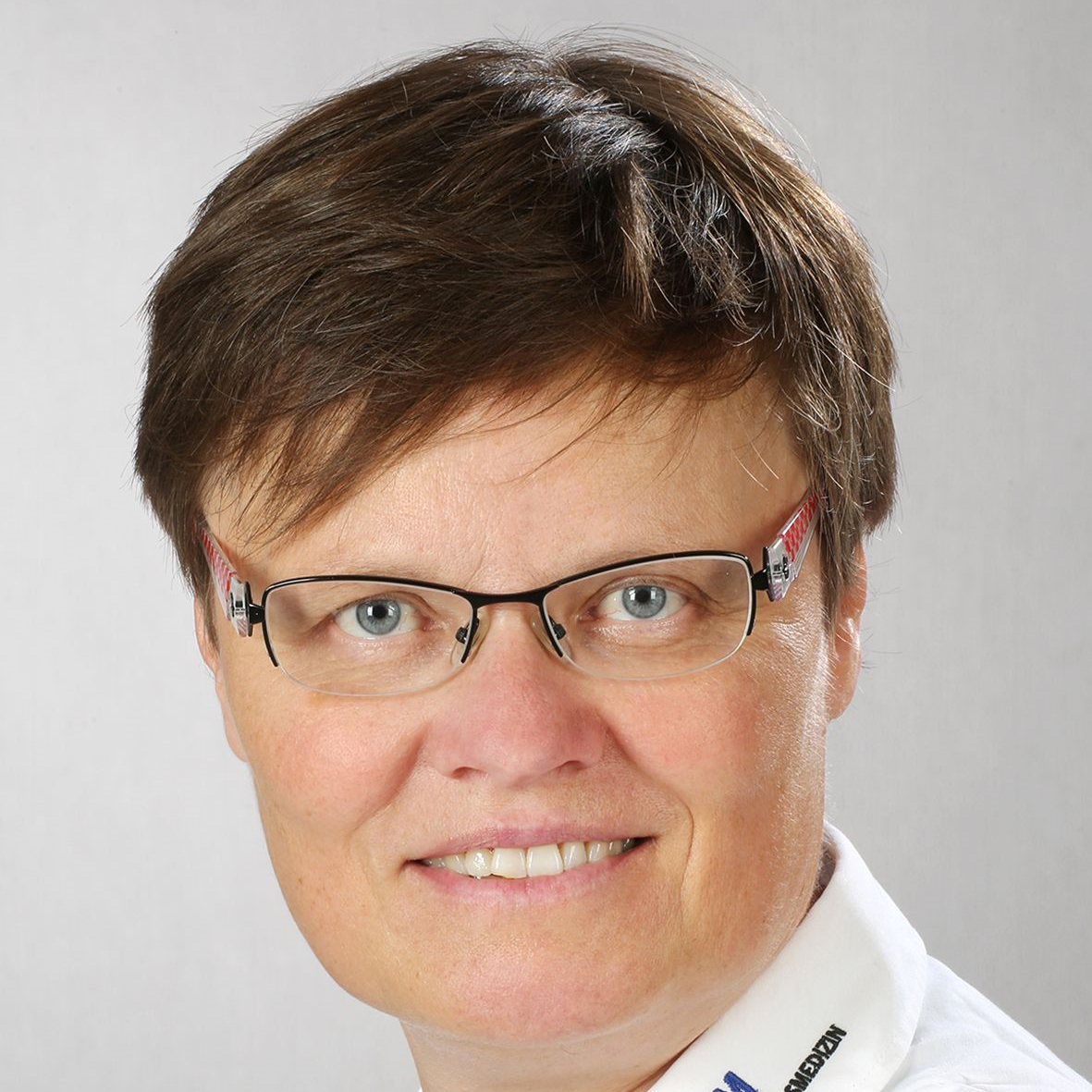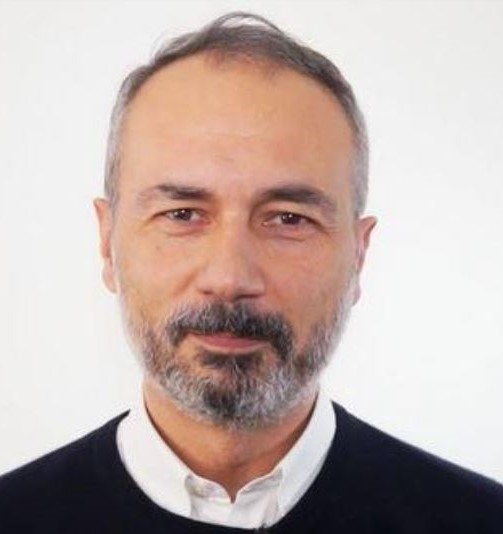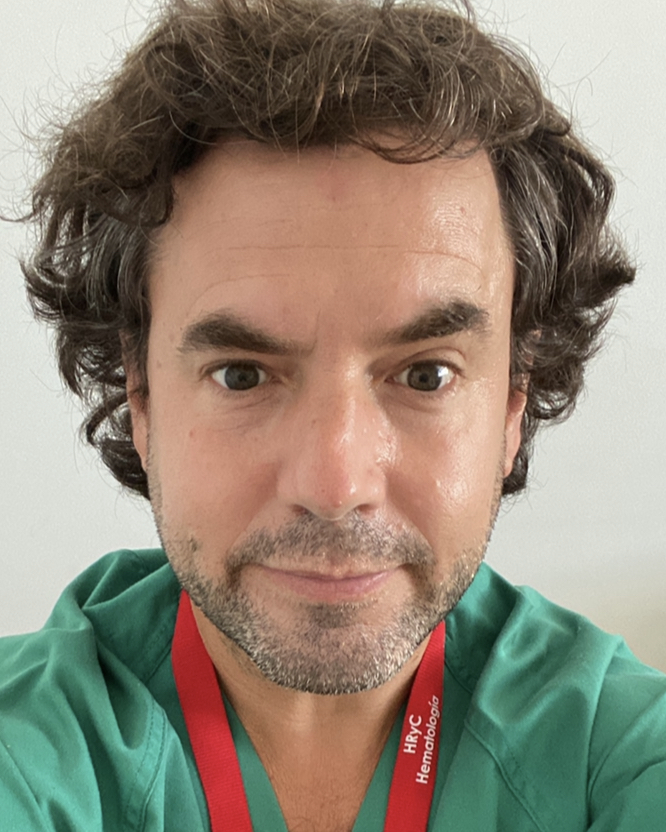touchSATELLITE SYMPOSIUM Tackling unmet needs in chronic myeloid leukaemia: What’s next in the treatment algorithm?
Three experts consider unmet needs in chronic myeloid leukaemia and how new and emerging treatments may help address them.

Prof. Susanne Saussele
University Clinic, Mannheim, Germany
CHAIR
Panelists:
Prof. Susanne Saussele opens the symposium and sets the scene for this discussion on tackling unmet needs in chronic myeloid leukaemia.
Prof. Valentín García Gutiérrez presents a short overview of the toxicities associated with tyrosine kinase inhibitors for treating chronic myeloid leukaemia (CML) and the impact of these toxicities on patient management. The session concludes with a conversation between him and Prof. Saussele about managing patients with CML, which is structured around questions from the audience.
Prof. Massimo Breccia highlights unmet needs in patients with chronic myeloid leukaemia (CML) being treated in the third- or later-line setting and how new and emerging treatments have been developed to address these unmet needs. The session concludes with a conversation between him and Prof. Saussele about which patients may benefit from the new and emerging therapies for CML, structured around questions from the audience.
Prof. Susanne Saussele reviews the current treatment paradigm for chronic myeloid leukaemia, highlighting areas where new and emerging agents may have a role, as well as indicating therapeutic settings that remain challenging.
Together with the audience, the expert panel discusses treatment options for three challenging case studies.
Overview & Learning Objectives
Overview
In this touchSATELLITE SYMPOSIUM, chronic myeloid leukaemia (CML) experts review the unmet treatment needs, including key safety considerations with tyrosine kinase inhibitors. They outline new and emerging agents and how they may address the unmet needs to improve outcomes for patients with CML.
Learning Objectives
After watching this activity, participants should be better able to:
- Summarize the rationale for new agents in CML in light of treatment safety considerations
- Discuss the unmet needs for patients with CML in later lines of therapy and how new agents may address these
- Explain how new and emerging agents may affect the treatment paradigm for patients with CML
Faculty & Disclosures

Prof. Susanne Saussele
University Clinic, Mannheim, Germany
Prof. Susanne Saussele is head of the CML Excellence Center in Mannheim, Germany, including the molecular laboratory and the Study Centre for Hematology of the Mannheim Cancer Center. She is also chief resident of the polyclinic at the III. Medical Clinic, Hematology and Oncology, University Clinic, Mannheim. In 2017, she was appointed Professor at the University of Heidelberg. read more
Prof. Saussele is a project leader at EUTOS (EUropean Treatment and Outcome Study of CML) and E-MPN (European Myeloproliferative Neoplasms Network), and is a member of the ELN-CML (European LeukemiaNet Chronic Myeloid Leukemia) working party. In addition, she is a member of the Scientific Program Committee of DGHO (German Society for Hematology and Medical Oncology) and was a member of the Scientific Program Committee of EHA (European Hematology Association) from 2014 to 2019.
Prof. Susanne Saussele discloses: Grants/Research support from Bristol Myers Squibb, Incyte and Novartis. Honoraria from Bristol Myers Squibb, Incyte, Novartis, Pfizer and Roche.

Prof. Massimo Breccia
Sapienza University of Rome, Rome, Italy
Prof. Massimo Breccia is an associate professor at Sapienza University of Rome, Azienda Policlinico Umberto I, Italy, where he is head of the Day Hospital Unit. read more
His scientific interests and publications are mainly focused on the biological and clinical aspects of acute and chronic myeloid leukaemias and myelodysplastic syndromes.
Prof. Breccia is a member of the SIE (Italian Society of Hematology), SIES (Italian Society of Experimental Hematology) and EHA (European Hematology Association). He is also co-chair of the GIMEMA QoL (Italian Adult Haematological Diseases Group – Quality of Life) working party and elected member of the GIMEMA MPN (myeloproliferative neoplasms) working party.
Prof. Breccia is an investigator in several clinical trials – particularly phase I – for chronic myeloid leukaemia, acute myeloid leukaemia and myelodysplastic syndromes. He has authored more than 500 peer-reviewed publications and serves as a peer reviewer for several journals, such as Blood, The Lancet, The Lancet Haematology, Haematologica, British Journal of Haematology and Cancer. He is also a member of the editorial board or associate editor of journals such as Frontiers in Oncology and Cancers.
Prof. Massimo Breccia discloses: Honoraria from AbbVie, Bristol Myers Squibb/Celgene, Incyte, Novartis and Pfizer.

Prof. Valentín García Gutiérrez
Ramón y Cajal University Hospital Madrid, Spain
Prof. Valentín García Gutiérrez is a haematologist at the Ramón y Cajal University Hospital and an associate professor of medicine at the University of Alcalá, Alcalá de Henares, Madrid, Spain. read more
He has been a principal investigator on 25 clinical trials (phases I–IV), investigating chronic myeloproliferative disorders and bone marrow transplantation. He is a principal investigator of the ‘Grupo de Hematología Traslacional’ at IRYCIS (the Ramón y Cajal Institute for Health Research). He also coordinates a number of national clinical trials in chronic myeloid leukaemia.
Prof. García Gutiérrez’s research has appeared in over 100 international publications and he has also contributed to a number of national guidelines and book chapters. He is a frequent invited lecturer at international and national haematology congresses. He is also president of GELMC (Spanish Chronic Myeloid Leukemia Group) and a member of GEMFIN (Spanish Group for Philadelphia Chromosome Negative Myeloproliferative Neoplasms).
Prof. Valentín García Gutiérrez discloses: Advisory fees from Bristol Myers Squibb, Incyte, Novartis and Pfizer. Honoraria from Bristol Myers Squibb, Incyte, Novartis and Pfizer. Research funding from Bristol Myers Squibb, Incyte and Pfizer. Speaker fees from Novartis.

REGISTER NOW FOR FREE ACCESS TO
- 1000+ topical and insightful peer-reviewed journal articles
- 100+ hours of bite-sized congress highlights
- 8 major therapy areas packed with the latest scientific advances
- 150+ specialties offering learn-on-the-go medical education
- + Concise email updates and newsletters so you never miss out

